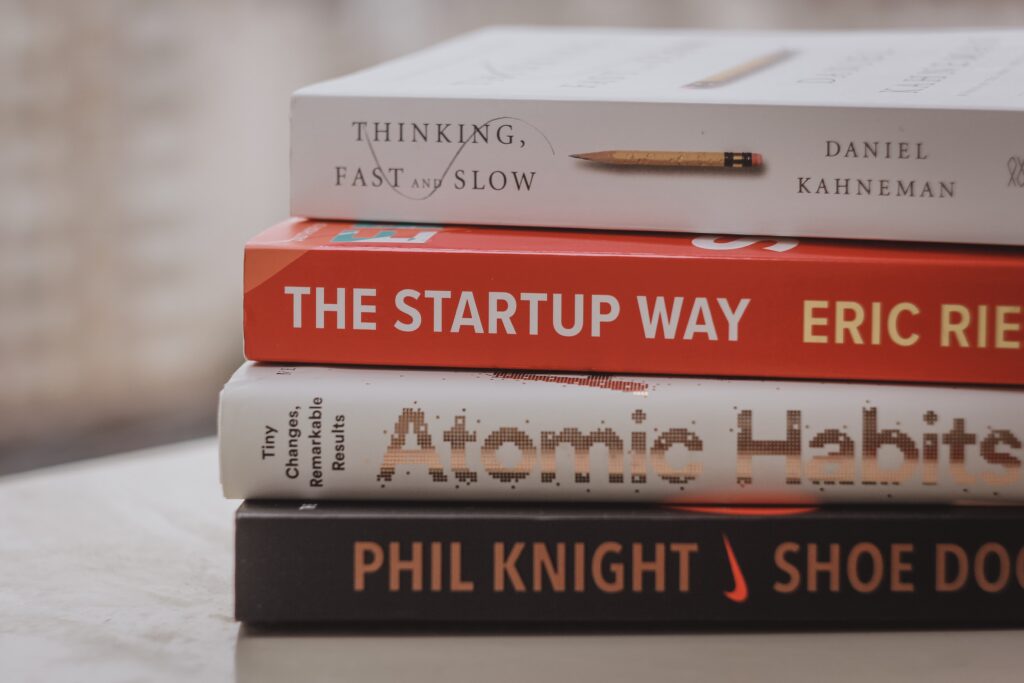In today’s fast-paced world, problem-solving skills are a vital asset that can empower us to overcome challenges and achieve success. But have you ever wondered how personal empowerment plays a crucial role in enhancing these skills? By harnessing the power within ourselves, personal empowerment enables us to approach problems with confidence, resilience, and creativity, paving the way for effective and innovative solutions. In this article, we will explore the ways in which personal empowerment influences problem-solving skills, providing invaluable insights for individuals seeking self-improvement and growth.

Understanding Personal Empowerment
Personal empowerment refers to the process of gaining knowledge, skills, and confidence to take control of one’s life and make positive changes. It involves recognizing one’s strengths, setting goals, and taking action to achieve those goals. Personal empowerment is essential for individuals to navigate challenges, overcome obstacles, and find fulfillment in various aspects of life.
Definition of Personal Empowerment
Personal empowerment can be defined as the ability to identify and utilize personal strengths and resources, take responsibility for one’s actions and choices, and have a sense of control over one’s life. It involves developing a positive mindset, building self-awareness, fostering effective communication skills, and setting and achieving goals. When individuals are empowered, they can make informed decisions, overcome difficulties, and create a meaningful and fulfilling life.
Components of Personal Empowerment
Personal empowerment comprises several essential components that contribute to one’s overall empowerment. These components include self-awareness, effective communication skills, goal setting, adopting a positive mindset, developing critical thinking skills, and overcoming obstacles and challenges. Each of these components plays a vital role in enhancing personal empowerment and improving problem-solving skills.
The Importance of Problem-Solving Skills
Problem-solving skills are critical for individuals to effectively navigate the challenges they encounter in personal and professional life. These skills enable individuals to assess situations, identify potential solutions, and implement effective strategies to overcome obstacles and achieve desired outcomes. Problem-solving skills are essential for building resilience, fostering creativity, improving decision-making, and enhancing overall effectiveness.
Definition of Problem-Solving Skills
Problem-solving skills can be defined as the ability to identify, analyze, and resolve problems or challenges effectively. These skills involve using logical reasoning, critical thinking, creativity, and collaboration to find practical solutions and make informed decisions. Problem-solving skills are transferable across various contexts and are highly valued in professional settings, as they contribute to individual and organizational success.
Role of Problem-Solving Skills in Personal and Professional Life
Problem-solving skills play a crucial role in both personal and professional life. In personal life, these skills enable individuals to overcome obstacles, make sound decisions, and achieve personal goals. Whether it’s managing finances, maintaining healthy relationships, or addressing personal challenges, individuals with strong problem-solving skills are better equipped to handle life’s uncertainties and complexities.
In the professional realm, problem-solving skills are highly sought after by employers. These skills help individuals handle complex work-related issues, adapt to change, and contribute to the overall success of the organization. Effective problem solvers can assess situations objectively, generate innovative ideas, and implement solutions that drive growth and improvement. Problem-solving skills also enhance teamwork, as individuals with strong problem-solving skills can collaborate effectively, resolve conflicts, and contribute to a harmonious work environment.
The Relationship between Personal Empowerment and Problem-Solving Skills
Personal empowerment and problem-solving skills are closely intertwined, as one’s level of personal empowerment significantly influences their problem-solving abilities. When individuals feel empowered, they are more likely to approach challenges with confidence, resilience, and a proactive mindset. Here are some ways in which personal empowerment improves problem-solving skills:
Enhancing Confidence and Self-Efficacy
Personal empowerment boosts confidence and self-efficacy, which are essential for effective problem-solving. When individuals believe in their abilities and strengths, they are more likely to tackle challenges head-on and persist in finding solutions. Confidence and self-efficacy provide individuals with the motivation and belief that they can overcome obstacles and achieve their goals, leading to improved problem-solving skills.
Developing a Growth Mindset
Personal empowerment fosters a growth mindset, which is crucial for effective problem-solving. A growth mindset is the belief that skills and abilities can be developed through dedication, effort, and continuous learning. When individuals adopt a growth mindset, they view challenges as opportunities for growth and learning. They are more likely to embrace feedback, seek new strategies, and persist in finding solutions, ultimately enhancing their problem-solving skills.
Improving Emotional Intelligence
Personal empowerment involves developing emotional intelligence, which plays a vital role in problem-solving. Emotional intelligence encompasses self-awareness, self-regulation, empathy, and social skills. Individuals with high emotional intelligence can understand and manage their emotions effectively, as well as navigate the emotions of others. This enables them to approach problem-solving with empathy, open-mindedness, and effective communication, leading to more successful outcomes.
Building Self-Awareness
Self-awareness is a fundamental component of personal empowerment and an essential aspect of improving problem-solving skills. By developing self-awareness, individuals can better understand their strengths, weaknesses, values, and beliefs, allowing them to make informed decisions and effectively solve problems. Here are some ways in which building self-awareness enhances problem-solving skills:
Recognizing Strengths and Weaknesses
Self-awareness enables individuals to identify their strengths and weaknesses, which is crucial for effective problem-solving. By recognizing their strengths, individuals can leverage them to develop innovative solutions and approach challenges with confidence. Similarly, identifying weaknesses allows individuals to seek support, acquire necessary skills, or collaborate with others to overcome limitations and find optimal solutions.
Identifying Limiting Beliefs and Self-Doubt
Building self-awareness helps individuals identify limiting beliefs and self-doubt that hinder problem-solving. Limiting beliefs are negative thoughts or assumptions that individuals hold about themselves, their abilities, or the world around them. These beliefs can limit creativity, hinder decision-making, and impede problem-solving. By recognizing and challenging these beliefs, individuals can develop a more positive mindset, embrace their capabilities, and approach problem-solving with confidence and optimism.
Cultivating Self-Reflection and Self-Care
Self-awareness involves practicing self-reflection and self-care, which are essential for maintaining mental and emotional well-being. Engaging in self-reflection allows individuals to analyze their thoughts, emotions, and actions, facilitating continuous growth and improvement. It also provides individuals with the opportunity to evaluate past problem-solving approaches, learn from experiences, and adjust their strategies accordingly. Additionally, practicing self-care ensures individuals have the mental and emotional resources necessary to approach problem-solving with clarity, focus, and resilience.

Developing Effective Communication Skills
Effective communication skills are vital for personal empowerment and are intrinsically linked to problem-solving abilities. Strong communication skills enable individuals to express their thoughts, ideas, and needs clearly, as well as listen actively and empathically to others. Here’s how developing effective communication skills enhances problem-solving:
Active Listening and Empathy
Effective communication involves active listening and empathy, which contribute to improved problem-solving. Active listening entails focusing on the speaker, understanding their perspective, and clarifying any uncertainties. This fosters open communication, builds trust, and allows individuals to gather relevant information to better analyze and solve problems. Empathy, on the other hand, involves understanding and considering the emotions and perspectives of others, enabling individuals to collaborate effectively, identify shared solutions, and resolve conflicts constructively.
Assertiveness and Expressing Needs
Developing assertiveness allows individuals to express their needs, opinions, and concerns in a respectful manner. Assertiveness is an essential communication skill that enables individuals to negotiate, advocate for themselves, and contribute effectively to problem-solving discussions. By being assertive, individuals can communicate their ideas and solutions confidently, ensuring their contributions are considered and valued in the problem-solving process.
Constructive Feedback and Conflict Resolution
Effective communication skills involve giving and receiving constructive feedback, which is crucial for problem-solving. Constructive feedback provides individuals with valuable insights, enabling them to identify areas for improvement and refine their problem-solving strategies. Similarly, individuals who can provide feedback in a constructive and respectful manner contribute to a positive problem-solving environment. Additionally, strong communication skills facilitate conflict resolution by creating a safe space for individuals to address differences, collaborate on solutions, and find common ground.
Setting and Achieving Goals
Goal setting is an integral part of personal empowerment and plays a pivotal role in developing problem-solving skills. By setting clear and meaningful goals, individuals can focus their efforts, track their progress, and stay motivated. Here is how setting and achieving goals enhance problem-solving:
Creating SMART Goals
Setting SMART goals allows individuals to establish clear and actionable objectives. SMART stands for Specific, Measurable, Achievable, Relevant, and Time-bound. By creating goals that meet these criteria, individuals can define the desired outcomes, measure progress effectively, and develop strategies to overcome obstacles. SMART goals provide individuals with a structured approach to problem-solving and ensure they remain focused and motivated throughout the process.
Breaking Down Goals into Manageable Steps
Breaking down goals into manageable steps enables individuals to approach problem-solving systematically. By dividing a complex problem or goal into smaller, more manageable tasks, individuals can prioritize their efforts, track their progress, and celebrate incremental achievements. This approach enhances problem-solving by providing individuals with a clear roadmap, facilitating effective resource allocation, and preventing overwhelm.
Building Resilience and Persistence
The process of setting and achieving goals requires resilience and persistence, which are essential problem-solving skills. Challenges and setbacks are inevitable in any problem-solving journey, and individuals who develop resilience can bounce back from failures, learn from mistakes, and adapt their strategies. Persistence ensures individuals remain determined and committed to finding solutions, even in the face of adversity. By building resilience and persistence, individuals enhance their problem-solving skills and increase their chances of success.

Adopting a Positive Mindset
A positive mindset is a powerful tool for personal empowerment and significantly impacts problem-solving abilities. By adopting a positive mindset, individuals can cultivate optimism, embrace failure as a learning opportunity, and practice gratitude and appreciation. Here’s how adopting a positive mindset improves problem-solving:
Cultivating Optimism
Optimism enables individuals to approach problem-solving with a positive outlook and a belief in their ability to find solutions. Optimistic individuals view challenges as temporary and solvable, allowing them to persist in finding innovative approaches. By cultivating optimism, individuals can overcome self-doubt, maintain motivation during difficult times, and inspire others to contribute to the problem-solving process.
Embracing Failure as a Learning Opportunity
A positive mindset involves embracing failure as a learning opportunity rather than a setback. Failure is an integral part of the problem-solving process, as it provides valuable insights, highlights areas for improvement, and fosters creativity. Individuals who adopt a positive mindset see failure as a stepping stone toward success, allowing them to persevere, learn from mistakes, and refine their problem-solving strategies.
Practicing Gratitude and Appreciation
Practicing gratitude and appreciation enhances problem-solving by fostering a positive and supportive problem-solving environment. When individuals express gratitude and appreciation for the contributions of others, it creates a sense of collaboration, motivates team members, and strengthens relationships. This positive environment encourages effective communication, creative thinking, and collaboration, ultimately improving problem-solving outcomes.
Developing Critical Thinking Skills
Critical thinking skills are essential for personal empowerment and are closely connected to problem-solving abilities. These skills enable individuals to analyze and evaluate information, identify problems, and generate creative solutions. Here’s how developing critical thinking skills enhances problem-solving:
Analyzing and Evaluating Information
Critical thinking skills involve the ability to gather, analyze, and evaluate information effectively. When solving problems, individuals need to assess the available information, identify relevant factors, and consider potential implications. By developing critical thinking skills, individuals can make informed decisions, perceive patterns, and evaluate the validity and reliability of information, leading to more effective problem-solving strategies.
Problem Identification and Formulation
Problem-solving begins with identifying and defining the problem accurately. Developing critical thinking skills enhances individuals’ ability to recognize problems and frame them in a way that facilitates solution generation. By thoroughly understanding the problem, individuals can approach it from different perspectives, explore underlying causes, and develop innovative solutions that address the root issues.
Generating Creative Solutions
Critical thinking skills stimulate creativity, which is vital for effective problem-solving. Individuals who can think critically can approach problems with an open mind, consider multiple perspectives, and generate innovative solutions. Creativity enables individuals to think outside the box, challenge assumptions, and explore unexplored possibilities, increasing the likelihood of finding optimal and unique problem-solving approaches.

Overcoming Obstacles and Challenges
Personal empowerment equips individuals with the skills and mindset necessary to overcome obstacles and navigate challenges effectively. Problem-solving is inherently linked to overcoming obstacles, as it involves finding solutions and taking action to address difficulties. Here’s how personal empowerment contributes to overcoming obstacles and challenges:
Developing Resilience and Perseverance
Personal empowerment fosters resilience and perseverance, which are crucial for overcoming obstacles. Resilience enables individuals to adapt to setbacks, setbacks, and unexpected changes, while perseverance ensures individuals remain committed and persistent in finding solutions. By developing these traits through personal empowerment, individuals can face challenges head-on, maintain motivation, and navigate obstacles effectively.
Adapting to Change
Change is inevitable, and personal empowerment prepares individuals to adapt and thrive in dynamic environments. Problem-solving often arises from change or challenges caused by change, and individuals who can embrace change are better equipped to address related problems. Personal empowerment enhances flexibility, adaptability, and open-mindedness, allowing individuals to approach change as an opportunity for growth and innovation.
Managing Stress and Pressure
Problem-solving can be demanding, often accompanied by stress and pressure. Personal empowerment equips individuals with strategies and coping mechanisms to manage stress effectively, enabling them to stay focused, think critically, and make decisions under pressure. By developing stress management skills through personal empowerment, individuals can maintain their well-being and problem-solving abilities even in high-pressure situations.
Conclusion
Personal empowerment and problem-solving skills are intrinsically connected, as personal empowerment enhances the ability to tackle challenges, make informed decisions, and achieve goals. By developing self-awareness, effective communication skills, goal-setting capabilities, a positive mindset, critical thinking skills, and resilience, individuals can cultivate personal empowerment and significantly improve their problem-solving abilities. Through personal empowerment, individuals gain the confidence, skills, and mindset necessary to navigate obstacles, adapt to change, and find innovative solutions, ultimately leading to personal and professional success. So embrace personal empowerment, and watch your problem-solving skills soar!
